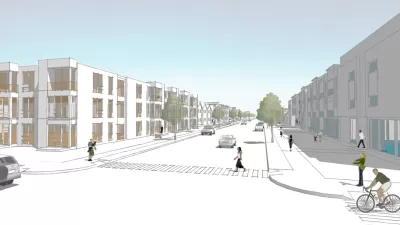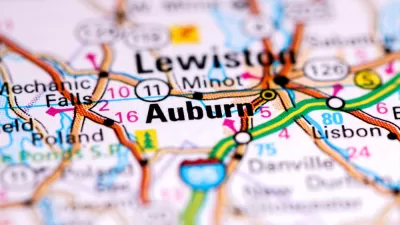Faced with the challenges and controversies of rapid growth, Charlotte has approved a new comprehensive plan and unified development code in recent years.

The city of Charlotte is all set to launch its new zoning code in June, culminating a process that included the adoption of a new Unified Development ordinance in 2022 and a new comprehensive plan in 2021.
An article by Julia Kauffman for WCNC Charlotte presents the news in relation to ongoing development controversies around the city, presenting the arguments of local homeowners that large developments are moving forward despite not fitting the goals of the Charlotte 2040 Comprehensive Plan.
For example, Kaufman mentions a total of 29 rezoning petitions under consideration, “including plans for thousands of apartments near Interstate 485.”
“The massive plan for housing, commercial space, and a school is not consistent with the city's 2040 Plan for that area, but city planners are still recommending city council approve it,” writes Kaufman.
“Land right outside of Mitchell's neighborhood on Mallard Creek Road is zoned for single-family houses. A developer has submitted a rezoning petition to change to build 186 townhomes on the property despite pushback from neighbors,” adds Kaufman. “When Charlotte’s UDO takes effect in June, houses, duplexes, and triplexes could be built on the land. Townhomes would not be allowed unless the land is rezoned.”
The 2040 Plan allows new density as the quickly growing city searches for solutions to rapidly rising housing prices. The UDO seems to be where the rubber is hitting the road with some members of the public. ““We understand the growth, we understand the need for density, but it's unchecked,” says homeowner Reverend Jordan Boyd, as quoted in the article.
The Charlotte UDO is online and available for independent review and assessment. Kaufman did not solicit any comments from members of the city’s planning staff.
FULL STORY: Charlotte's new zoning rules that guide growth take effect in June

Planetizen Federal Action Tracker
A weekly monitor of how Trump’s orders and actions are impacting planners and planning in America.

Maui's Vacation Rental Debate Turns Ugly
Verbal attacks, misinformation campaigns and fistfights plague a high-stakes debate to convert thousands of vacation rentals into long-term housing.

Restaurant Patios Were a Pandemic Win — Why Were They so Hard to Keep?
Social distancing requirements and changes in travel patterns prompted cities to pilot new uses for street and sidewalk space. Then it got complicated.

In California Battle of Housing vs. Environment, Housing Just Won
A new state law significantly limits the power of CEQA, an environmental review law that served as a powerful tool for blocking new development.

Boulder Eliminates Parking Minimums Citywide
Officials estimate the cost of building a single underground parking space at up to $100,000.

Orange County, Florida Adopts Largest US “Sprawl Repair” Code
The ‘Orange Code’ seeks to rectify decades of sprawl-inducing, car-oriented development.
Urban Design for Planners 1: Software Tools
This six-course series explores essential urban design concepts using open source software and equips planners with the tools they need to participate fully in the urban design process.
Planning for Universal Design
Learn the tools for implementing Universal Design in planning regulations.
Heyer Gruel & Associates PA
JM Goldson LLC
Custer County Colorado
City of Camden Redevelopment Agency
City of Astoria
Transportation Research & Education Center (TREC) at Portland State University
Jefferson Parish Government
Camden Redevelopment Agency
City of Claremont





























